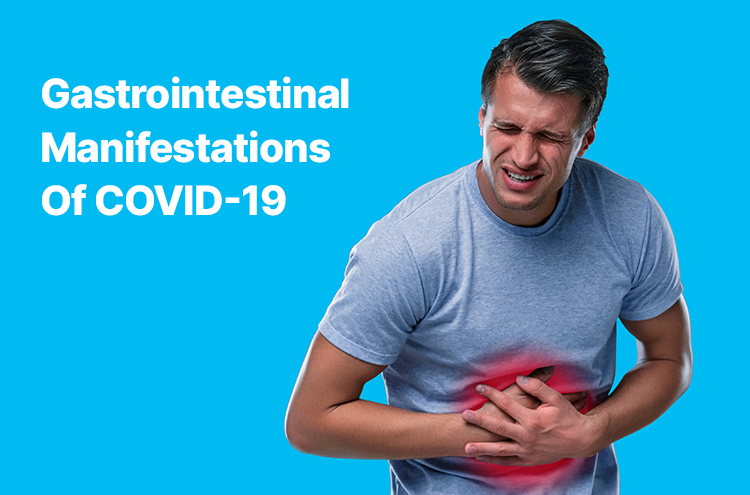symptoms of gastrointestinal and liver manifestations of COVID-19
Apr 19, 2022
Unfortunately, COVID-19 needs no introduction. It has changed all of our lives in unimaginable ways over the past two years and caution is abound. However, there is another aspect that everyone needs to grow aware of, symptoms of gastrointestinal and liver manifestations of COVID-19. There has been recent evidence of COVID-19 found in the stool of patients, resulting in further research to understand all the various areas of our body that have been infected with it.

it is best to be aware symptoms of gastrointestinal and liver manifestations in patients with COVID-19 to ensure that one can take extra care and precaution.
What has been found?
Apart from finding COVID-19 RNA in the stool of patients, it also seems to be present in oesophageal, gastric, duodenal, and rectal biopsies as gastrointestinal manifestations of COVID-19. Additionally, there have been traces detected in the gastrointestinal and liver tissue of patients. While there is no clear evidence on how the disease has entered host cells, signs point to the ACE2 receptor, an enzyme that is abundant in the small bowel and colon.
What are the symptoms of gastrointestinal and liver manifestations of COVID-19?
Symptoms of Gastrointestinal and liver manifestations in patients with COVID-19 can be seen through the following:
- Loss of appetite.
- Diarrhoea
- Nausea and Vomiting.
- Abdominal Pain.
While the symptoms listed above are the most common results of liver manifestations of COVID-19 infection, an exhaustive and more accurate list of symptoms has not yet been formulated. Additionally, there is contradicting data among scientists and doctors as to whether or not gastrointestinal manifestations of COVID-19 result in a more serious and prolonged illness. According to one study of almost 30,000 patients, liver manifestations of COVID-19 infection were associated with a 50% increased risk of severe illness. Thus, it is best to be aware of gastrointestinal and liver manifestations in patients with COVID-19 to ensure that one can take extra care and precaution.
Additionally, there is no specific treatment procedure for liver manifestations of COVID-19 infection yet other than supportive and individual care for specific symptoms. However, more attention can be paid to hydration and the patient’s fluid intake. In case of dehydration, the patient can be given oral or intravenous rehydration for their gastrointestinal manifestations of COVID-19.
If you think you might be exhibiting any gastrointestinal and liver manifestations of COVID-19, contact Paras Hospitals immediately so that your treatment may begin and the risk of infecting other people is reduced. To book an appointment near you, click here.






.png)
.jpg)
